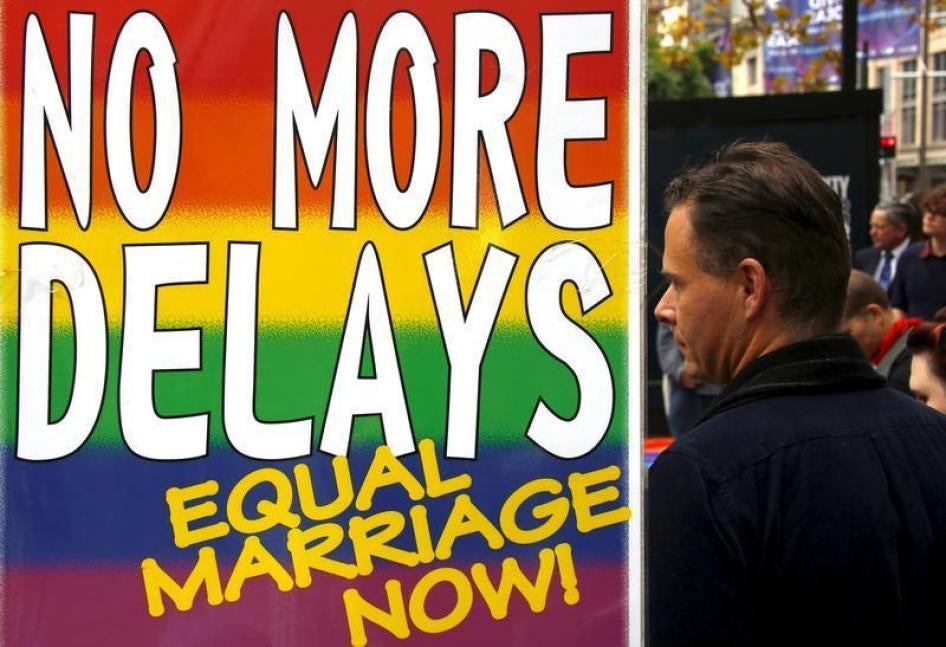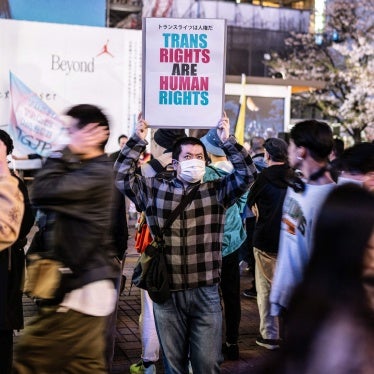The Australian government wants people to “have their say” on same-sex marriage. It is planning a plebiscite on February 11, 2017 that will ask voters, “Should the law be changed to allow same-sex couples to marry?”
Well, in that case, should a government allow voters to “have their say” on whether domestic violence should be criminalized, or whether an unpopular ethnic minority should enjoy freedom from discrimination, or allowing members of a minority religious group to practice their faith?
Of course not. As the South African Constitutional Court said in 1995 when abolishing the death penalty, rights “cannot be referred to a referendum, in which a majority view would prevail over the wishes of any minority.” Doing so would defeat the political purpose of “rights.”
Yet, too often same-sex marriage rights are subjected to the wishes of the majority. The government of Malcolm Turnbull is perpetuating this dangerous practice by asking all Australians—most of whom are not directly affected by the inequality in the Marriage Act 1961—whether they are ready for a minority to enjoy equal rights.
Though Ireland upheld LGBT rights when the majority Catholic country voted overwhelmingly in favor of marriage equality in 2015, the invalidated referendum on same-sex marriage in Bermuda in June 2016 illustrates the real danger of employing direct democracy to cast ballots on individual rights.
And while polls suggest that many Australians are ready for same-sex marriage, the path to the voting booth would not be without pain for the country’s LGBT community. With many conservative and religious groups already riled up, the campaign is sure to be marked by stereotyped and offensive arguments about same-sex couples. And that’s in addition to the sustained and intense scrutiny these vulnerable communities will have to endure.
What may even be worse is the pernicious precedent that Australia will be espousing – that human rights are not universal and protected by the government, but rather only yours once they are bestowed upon you by the majority. This may embolden other governments around the world to follow suit, and perhaps even to hold plebiscites and referendums on rights beyond same-sex marriage.









